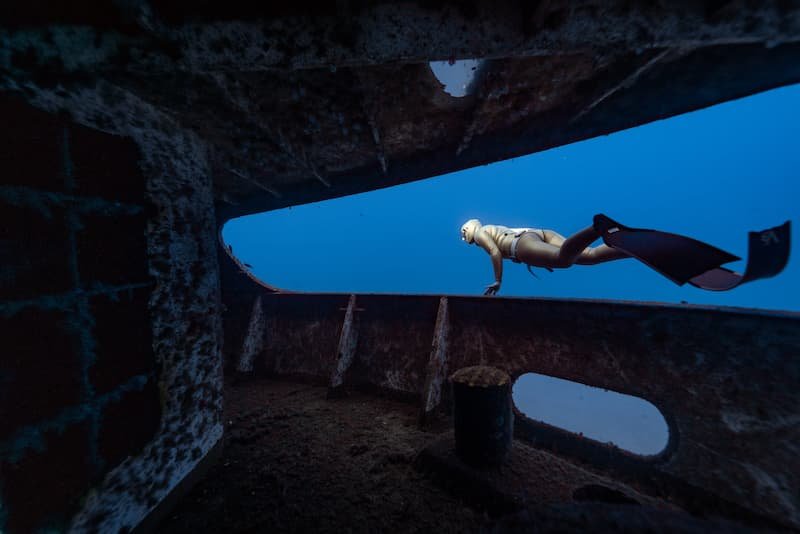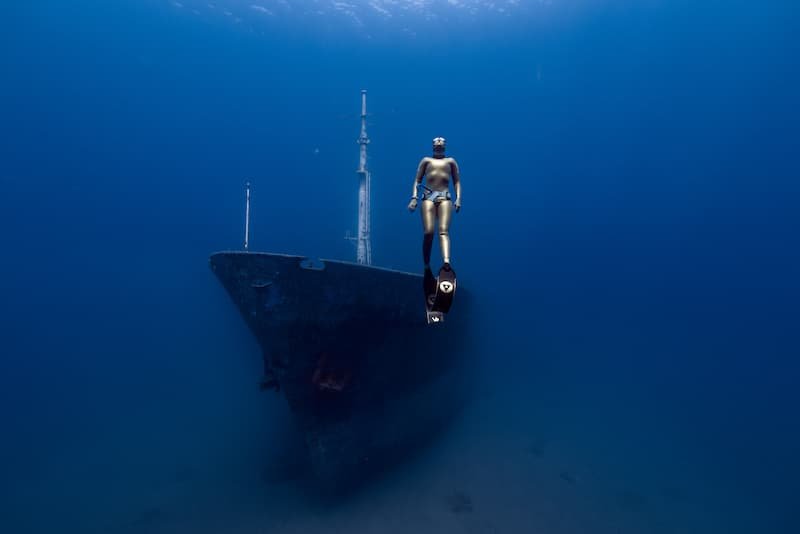
 Nick Pelios
Freediver, Creator
Nick Pelios
Freediver, Creator

 Nick Pelios
Freediver, Creator
Nick Pelios
Freediver, Creator
One of the most remarkable adaptations that enable humans to endure underwater conditions is the Mammalian Dive Response (MDR). In this article, we will explore the significance of the MDR in freediving and understand how it helps divers achieve impressive feats.
The Mammalian Dive Response is an innate physiological mechanism found in all mammals, including humans, whales, seals, and dolphins. It is a set of reflexes triggered by the body when exposed to cold water and breath-holding, preparing the body for underwater survival. The three primary components of MDR are bradycardia, peripheral vasoconstriction, and blood shift.
Bradycardia: When a person submerges their face in cold water, the MDR causes the heart rate to slow down significantly. Bradycardia helps conserve oxygen by reducing the heart's demand for blood and decreasing the risk of hypoxia (oxygen deprivation). This response allows divers to extend their breath-hold time and maximize their chances of diving deeper.
Peripheral vasoconstriction: The MDR induces peripheral vasoconstriction, which is the narrowing of blood vessels in the extremities, including the arms and legs. By redirecting blood flow away from the limbs and towards vital organs like the brain and heart, the body can prioritize oxygen supply to these critical areas. This redistribution of blood improves the body's efficiency in oxygen utilization, enhancing the diver's breath-hold capacity and overall performance.
Blood shift: Another important feature of the MDR is the blood shift. As a diver descends into the water, the increasing pressure causes blood vessels in the chest to compress. This compression results in the movement of blood from the thoracic blood vessels into the heart and lungs. By filling the pulmonary circulation with blood, the body compensates for the increased pressure, preventing the collapse of air-filled spaces in the lungs. This blood shift also helps to conserve oxygen and enhance buoyancy, making it easier for the diver to reach greater depths.

Prolonged breath-hold time: The MDR allows freedivers to extend their breath-hold time significantly. By slowing down the heart rate, reducing oxygen consumption, and redirecting blood flow to vital organs, divers can conserve precious oxygen reserves. This extended breath-hold time enables freedivers to explore the underwater world more thoroughly, interact with marine life, and undertake challenging dives.
Improved diving performance: The MDR's peripheral vasoconstriction and blood shift contribute to enhanced diving performance. The redirection of blood towards the core of the body increases oxygen supply to critical organs, resulting in improved mental clarity, concentration, and physical abilities underwater. Freedivers can achieve greater depths and exhibit better control over their body's response to the demanding aquatic environment.
Enhanced safety: The MDR acts as a natural protective mechanism during freediving. By reducing the heart rate and redistributing blood flow, it helps mitigate the risks associated with breath-holding. With the heart working at a slower pace, divers are less prone to heart-related complications during the dive. Additionally, the blood shift prevents lung barotrauma, a condition that occurs when the air-filled spaces in the lungs collapse due to the increasing pressure underwater.
Adaptation to cold water: Cold water is a common element in freediving, and the MDR helps divers adapt to this challenging environment. The reflexive vasoconstriction diverts warm blood away from the skin's surface, reducing heat loss and extending the time before hypothermia sets in. This adaptation enables freedivers to explore colder regions, such as polar waters, and withstand prolonged exposure to low temperatures.

The Mammalian Dive Response is a remarkable physiological mechanism that plays a crucial role in the sport of freediving. Its ability to prolong breath-hold time, enhance diving performance, ensure safety, and adapt to cold water conditions makes it an indispensable asset for freedivers. By harnessing the power of the MDR, freedivers can push the boundaries of human potential and explore the underwater world with greater ease and confidence. As our understanding of the MDR deepens, it opens up new avenues for research and advancements in the field of breath-hold diving, making the sport even more thrilling and rewarding for enthusiasts worldwide.